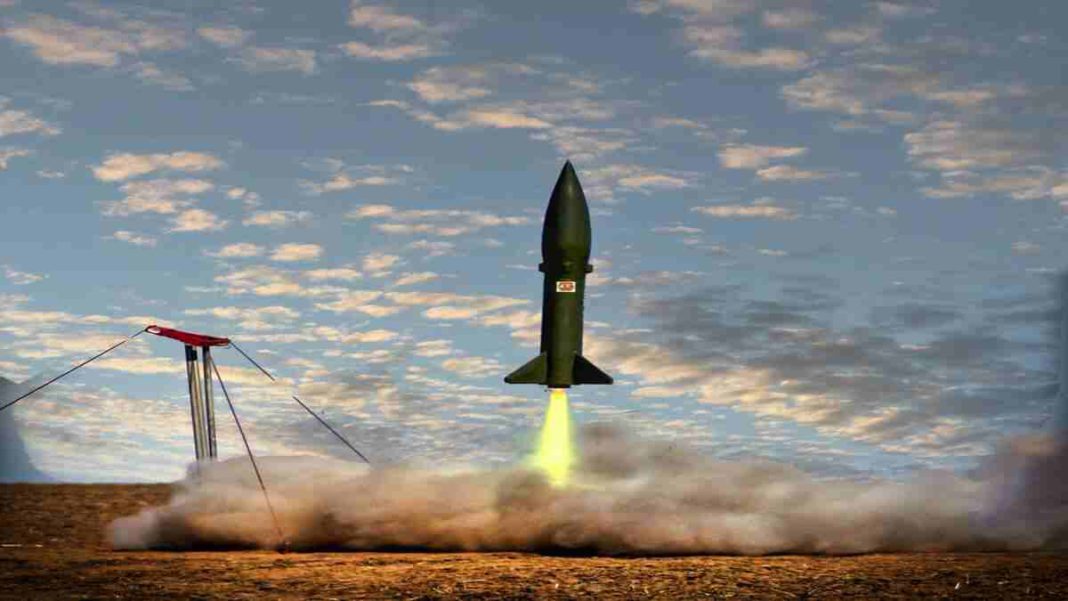NORTH KOREA: North Korea has reported that its recent attempt to launch its inaugural spy satellite was unsuccessful, as the rocket experienced a loss of thrust and ultimately fell into the ocean off the western coast of the Korean Peninsula. Specialists are currently investigating the cause of the failure.
According to the official KCNA news agency, the malfunction of the newly developed Chollima-1 satellite launch rocket was attributed to instability in its engine and fuel system. Authorities are conducting a thorough examination to identify the significant flaws that contributed to the rocket’s unsuccessful mission.
The South Korean Joint Chiefs of Staff confirmed that a rocket was launched from the Tongchang-ri area in northwest North Korea at 6:30 a.m. local time, but it exhibited abnormal flight behaviour before eventually landing in the ocean. Hirokazu Matsuno, the Chief Cabinet Secretary of Japan, stated that no object is believed to have successfully entered space as a result of the launch.
The false alarm triggered by the launch, which led to an air raid siren and emergency message in Seoul, South Korea, caused a state of confusion and bewilderment among the public. Given the long-standing hostilities between the two countries on the Korean Peninsula, such false alarms have the potential to undermine public confidence in the effectiveness of the alert system.
Seoul’s mayor, Oh Se-hoon, acknowledged that the emergency text may have been an overreaction, but emphasized the paramount importance of safety without compromise. As a response, Seoul will reinforce its warning system to prevent any future confusion, while the South Korean military has released images of debris found on the seafloor.
Both South Korea and Japan issued temporary evacuation orders following the North Korean launch. While Seoul initially issued alerts to its citizens, they were later cancelled. The Okinawa prefecture in southwest Japan was advised to seek shelter indoors or underground, but the evacuation alerts were subsequently rescinded.
In retaliation for what North Korea deemed “reckless military acts” by the United States and South Korea, Vice-Chairman Ri Pyong Chol of North Korea’s governing party announced the missile launch on Tuesday. The launch of a ballistic missile, in violation of U.N. Security Council resolutions, has drawn condemnation from the United States.
President Joe Biden and his national security team are currently evaluating the situation in close coordination with U.S. allies and partners. The existence of a North Korean spy satellite remains uncertain; however, if it were to exist, it would likely possess the capability to monitor troop movements and target larger entities such as warships and aircraft.
Vice-Chairman Ri Pyong Chol further declared that North Korea would employ various reconnaissance tools to track, monitor, discriminate, control, and respond to the movements made by the United States and its partners. Lee Choon Geun, a distinguished research fellow at the Science and Technology Policy Institute of South Korea, suggested that North Korea could potentially develop a space-based surveillance system utilizing three to five spy satellites to provide near-real-time monitoring of the Korean Peninsula.
The United States condemned Pyongyang’s launch, considering it a violation of UN Security Council resolutions, and has pledged to take all necessary measures to safeguard itself and its allies. Adam Hodge, a spokesperson for national security, emphasized that diplomatic channels remain open for potential negotiations.
UN Secretary-General Antonio Guterres strongly denounced North Korea’s use of ballistic missile technology, highlighting its contravention of security council resolutions. Kim Jong-un, the leader of North Korea, perceives military satellites as crucial for the country’s defense.
Professor Leif-Eric Easley from Seoul’s Ewha University suggests that the North Korean government likely views itself as engaged in a space competition.
Also Read: North Korea’s Kim Calls for Nuclear Attack Preparedness against the US and South Korea



